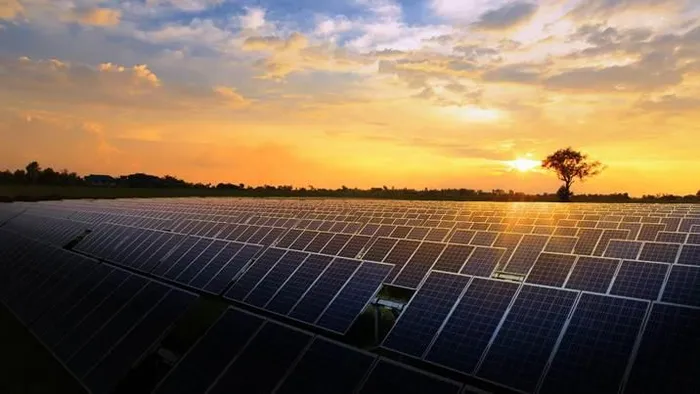The 2025 Budget and the future of renewable energy in South Africa

By 2030, renewable energy will power 41% of South Africa’s electricity grid.
Image: Supplied
By Avesh Padayachee
Finance Minister Enoch Godongwana’s 2025 Budget presents a crucial opportunity for renewable energy in South Africa. With R219.2 billion allocated to energy infrastructure, government aims to modernise and expand the grid. However, success depends on efficient execution, streamlined regulations, and sustained investor confidence.
By 2030, renewable energy will power 41% of South Africa’s electricity grid. Large-scale solar and wind projects, combined with energy storage, will strengthen energy stability. Decentralised generation, where businesses and households invest in solar, will reduce reliance on Eskom and create a more diverse, resilient energy sector.
Eskom’s restructuring is certain to open the market to competition, allowing private producers fairer grid access through an independent transmission system operator. Advances in flexible grid solutions and energy storage will help renewables form the backbone of a stable, low-carbon power system. Beyond environmental benefits, this shift will stimulate economic growth. It will generate jobs, and drive technological innovation.
Previous delays in infrastructure projects show us that South Africa’s executive game can be improved. Regulatory reforms for public-private partnerships, set to take effect in June 2025, should speed up approvals and attract investment. These changes could accelerate South Africa’s renewable transition and reinforce investor confidence.
Even minor VAT hikes affect large-scale solar, battery storage, and inverter investments, reducing bid competitiveness. So a 1% VAT increase by 2027 will add financial pressure on capital-intensive renewable projects. Cost efficiencies, supplier negotiations, and continued advocacy for tax relief on renewables are essential if South Africa is to maintain momentum in adopting alternate energy.
Despite budgetary support, obstacles remain. Grid access and capacity challenges delay project implementation. Significant infrastructure investment and fast-tracked upgrades are necessary to resolve these bottlenecks. Regulatory delays persist, even with improvements under Operation Vulindlela and the revised public-private partnership framework.
Independent power producers face risks when relying on payments from financially unstable municipalities. Clear policies on government partnerships, structured procurement programmes, and financial incentives will encourage investment and long-term stability.
A transparent procurement framework with regular bid rounds and reduced red tape will allow faster project deployment. Strengthening grid access through clear wheeling regulations and targeted investment will ease integration. Additionally, reinstating tax incentives (such as accelerated depreciation and VAT relief) will enhance financial viability.
While the 2025 budget’s commitment to energy investment is promising, execution, policy consistency, and financial incentives will determine its impact. Addressing key barriers and fostering a stable investment environment will accelerate South Africa’s transition to a cleaner, more sustainable energy future.

Avesh Padayachee, CEO and Marike Wilson CFO at Fibon Energy.
Image: Social Media
Avesh Padayachee, CEO and Marike Wilson CFO at Fibon Energy.
*** The views expressed here do not necessarily represent those of Independent Media or IOL.
BUSINESS REPORT
Related Topics: